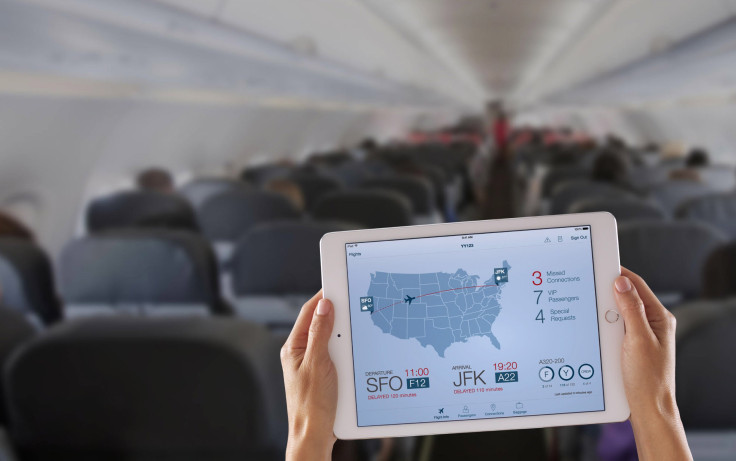Apple And IBM, With Microsoft In The Crosshairs, Roll Out 10 iOS Apps For Business

Time may be winding down on 2014, but Apple is keeping its foot on the gas, releasing a new suite of iPhone and iPad business apps in conjunction with IBM on Wednesday. With the apps, Apple is hoping to boost sales of iPads, which have been dwindling over the past year, while gaining a larger foothold in the enterprise market at the expense of rival Microsoft. As for growth-challenged Big Blue, its partnership with Cupertino is a way into mobile computing, where it’s largely been absent.
Altogether, the two companies announced 10 IBM Mobile First for iOS apps, as they’re officially called. The apps range in capabilities but can benefit governments as well as companies in the banking, retail, insurance, financial services, telecom and airline industries. IBM and Apple said the apps can be customized for any client and added that they are continuing to design and develop more.
With these types of apps, professionals will be able to do more on the go, the companies said. For example, a flight attendant could use the Passenger+ app 30,000 feet in the air to rebook a traveler who is in danger of missing a connection. Another app, Incident Aware, can be used by law enforcement officials to get real-time information on the status of a victim or a video feed of an accident location.
"Organizations are embracing this because they know this is how they can get this next level of productivity,” said Katharyn White, vice president of the IBM-Apple partnership for IBM Global Business Services. “These apps are changing the effectiveness of organizations and allowing them to realize what they had thought possible.”
They are also changing how work gets done and, in the process, reshaping the business computing landscape. Much of the data collected by these apps would typically have been entered into a program running on a Windows PC. Now workers in the field can capture information directly with their mobile devices -- mostly iPhones or iPads. The shift threatens to put a big dent in Microsoft’s multibillion-dollar enterprise computing business while making Apple a significant player in the market for the first time.
Cupertino currently holds just 2 percent of the enterprise desktop market, according to the latest data from research firm Forrester, and 6 percent of the business laptop market. But desktops and laptops are becoming less relevant. “The business world has gone mobile, and Apple and IBM are bringing together the world’s best technology with the smartest data and analytics to help businesses redefine how work gets done,” said Philip Schiller, Apple’s senior vice president of worldwide marketing, in a statement.
Among the partnership’s initial customers are Citi, Sprint, Air Canada and Mexican bank Banorte. Apple and IBM did not say how many other clients they already have other than, “We’re working with many companies around the world,” according to an IBM spokesperson.
By teaming up, Apple and IBM are hoping to help each other in their respective fields. Apple already dominates sales of mobile enterprise hardware, but over the past three quarters, it has seen a drop in the total sales of iPads as the tablet market begins to plateau. iPad shipments slipped 4 percent, to 67.9 million total units, from fiscal 2013 to 2014, according to Apple’s financial statements.
Earlier this year, CEO Tim Cook said one way he hoped to fix that was by getting more businesses to purchase the tablets. The tablet market is getting cannibalized by large-size smartphones like the iPhone 6 line, and it has been saturated in the consumer market.
"It's still strong growth going forward, but it's going to be tough for Apple," said Daniel Ives, managing director and senior analyst at FBR Capital Markets. “The hypergrowth days, in our opinion, are in the rearview mirror.”
IBM, meanwhile, is hoping a partnership with Apple can help it reduce the massive lead Microsoft holds in the enterprise software market, but IBM has its work cut out. Last year, Microsoft raked in $65.7 billion in enterprise software revenue, dwarfing the $29.1 billion IBM pulled in, according to Gartner.
The partnership between Apple and IBM is off to a strong start, but Microsoft has done a commendable job protecting its lead in the enterprise market, Ives said. If Apple and IBM hope to put a dent in Microsoft’s lead, they’ll have do more than release 10 apps. “It looks good on paper, but I think it's still going to take some time to see what type of adoption we see,” Ives said. “It's only in the first minutes of the first quarter of a 60-minute game in terms of how successful the partnership will be.”
© Copyright IBTimes 2024. All rights reserved.












